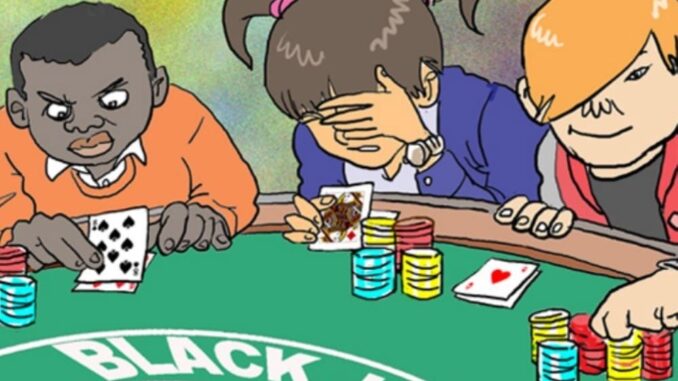
A few weeks ago we already looked at the question of how responsible gaming can work in a guidebook. The National Council on Problem Gambling (NCPG) has now published the results of a study with a total of 28,000 participants that looked at the gambling behavior of Americans. It was noticeable that many younger people had an increased risk of gambling addiction.
Why are young people more addicted to gambling?
As part of the NCPG study, those responsible found that half of the under 35-year-olds are generally more likely to become addicts. This fact goes hand in hand with the fact that the people affected tend to suffer from problematic or even pathological gambling behavior. The older study participants had a significantly lower affinity for gambling. For example, only about 10% of the participants showed worrying exposure to gambling.
According to the NCPG study, the vast majority (75%) of those surveyed have gambled at least once in the past year. On the other hand, only about one in ten (12%) stated that they had never played in their entire life.
According to the study results, the cause of uncontrolled and dangerous gaming behavior could be an incorrect assessment of the topic of gambling. The scientists found out that 16 out of 100 participants are convinced that they can earn money with their gambling activities. Such a point of view is certainly dangerous, since it is well known that only chance decides success or failure in gambling. Anyone who is convinced that they can earn money by gambling could become addicted to gambling much more quickly.
It is alarming that many participants in the US study also agreed that “after losses, the chances of victory increase”. The statement “more frequent games helps me to win more than lose” was also answered in the affirmative by quite a few respondents. Therefore, younger people in particular have far too often the wrong attitude towards the subject of gambling.
The National Council on Problem Gambling (NCPG) is the oldest organization for gambling issues and was founded in 1972. The NCPG has established two principles: On the one hand, the organization should be the adviser for problem players and their families. On the other hand, a neutral stance on all gambling activities should be maintained.
Is gambling addiction the result of moral weakness?
Experience shows that many sufferers keep their gambling addiction secret for a very long period of time. This could be because many of those affected believe that gambling addiction is a result of moral weakness. In addition, many gambling addicts think that they are not strong enough to fight the addiction. As a result, however, they get into a “downward spiral”, which often intensifies addiction. Several months ago we reported on a British study that examined the question of whether young gambling addicts are more at risk of suicide.
According to the American scientists, sports betting has the highest risk of addiction. The risk of gambling addiction is said to be three times greater than with other types of gambling. Anyone who places a sports bet at least once a week is said to have a risk five times as high as a normal “gambler” of becoming addicted to gambling.
Conclusion
The current US study confirms the assumption that the risk of gambling addiction is significantly greater for younger people. Young sports betting customers in particular have a particularly high risk of becoming addicted to gambling. Often the study participants obviously have the wrong attitude towards gambling. Too often, they believe that gambling is indeed a lucrative source of income and that they are more likely to win after suffering losses. However, the findings relate exclusively to US players.


Be the first to comment